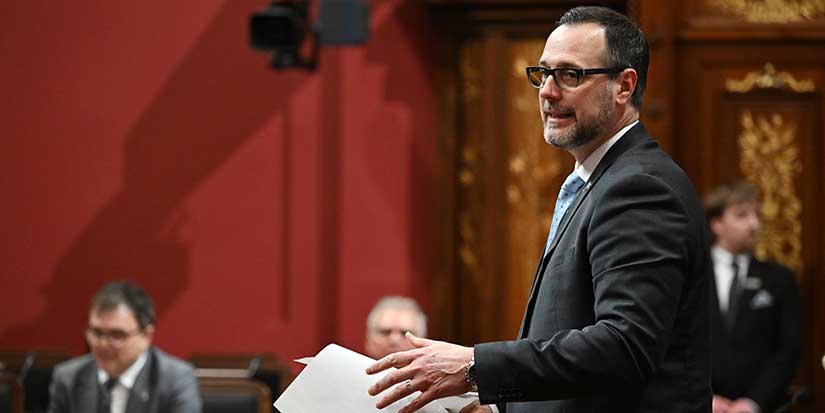National News
Quebec government bans gender-neutral pronouns in official state documents
Published 11:32 PDT, Wed September 24, 2025
Last Updated: 12:07 PDT, Wed September 24, 2025
—
The Quebec government is banning the use of recently invented gender-neutral words in all official communications, in what it says is an attempt to preserve the clarity of the French language.
The updated language policy applies to newly emerging words including gender-neutral pronouns that are commonly used by transgender and non-binary people. French-language Minister Jean-François Roberge said Wednesday that "more and more" public bodies have been using such words, which is causing confusion.
"It's as if everyone had their own grammar," he told reporters. "It doesn't make sense."
Roberge insisted the move is about protecting the integrity of the language, not an attack on non-binary people. “I don’t want to exclude anybody. We are open-minded. We want people to be happy," he said.
"We have some people who are gender-fluid. They are who they are, they are who they want to be, and this won’t change."
The province says non-binary people will still be able to use the gender marker X on certain government documents.
The updated policy will ban the use of words like "iel" — a recent invention that is equivalent to using the singular pronoun "they" for a non-binary person. It will also prohibit new ways of writing words that attempt to blend their masculine and feminine forms, such as "étudiant.e.s," which refers to male and female students.
For now, the policy will apply to government departments and municipalities, Roberge said, but similar rules will be introduced for schools, universities and the health-care system.
Gender-neutrality presents challenges in French, in part because many words used to describe groups of people have both masculine and feminine forms. In practice, the masculine form is often used alone for simplicity. In Wednesday's announcement, the government said it is acceptable to add the feminine ending in parentheses — "étudiant(e)," for example.
But a 2021 guide to inclusive grammar, published by a Quebec City trans rights group, says that parentheses are to be avoided because they "are perceived by many as implying that the other genders represented are not as important."
Another difficulty relates to gender agreement. There is no consensus about how to make adjectives with masculine and feminine forms — "beau" or "belle," for example — agree with gender-neutral pronouns.
"There are things that are incompatible with grammar," Roberge said Wednesday.
But Manon Massé, a member of the legislature with leftist party Québec solidaire, accused the government of "inventing problems" to distract from their record.
"No one asked for this," she said on social media. "Their days in power are numbered, and this is their priority?"
– Maura Forrest, The Canadian Press































